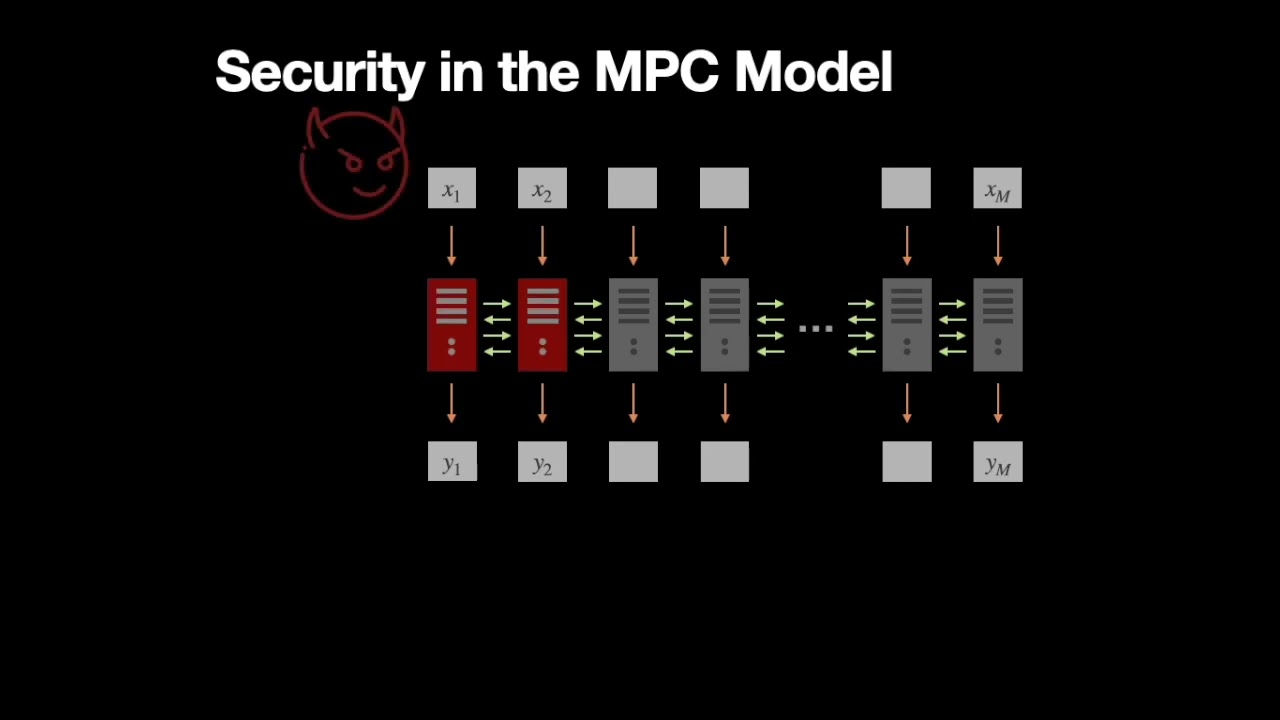Welcome to the resource topic for 2022/1027
Title:
Maliciously Secure Massively Parallel Computation for All-but-One Corruptions
Authors: Rex Fernando, Yuval Gelles, Ilan Komargodski, Elaine Shi
Abstract:The Massive Parallel Computing (MPC) model gained wide adoption over the last decade. By now, it is widely accepted as the right model for capturing the commonly used programming paradigms (such as MapReduce, Hadoop, and Spark) that utilize parallel computation power to manipulate and analyze huge amounts of data.
Motivated by the need to perform large-scale data analytics in a privacy-preserving manner, several recent works have presented generic compilers that transform algorithms in the MPC model into secure counterparts, while preserving various efficiency parameters of the original algorithms. The first paper, due to Chan et al. (ITCS ’20), focused on the honest majority setting. Later, Fernando et al. (TCC ’20) considered the dishonest majority setting. The latter work presented a compiler that transforms generic MPC algorithms into ones which are secure against semi-honest attackers that may control all but one of the parties involved. The security of their resulting algorithm relied on the existence of a PKI and also on rather strong cryptographic assumptions: indistinguishability obfuscation and the circular security of certain LWE-based encryption systems.
In this work, we focus on the dishonest majority setting, following Fernando et al. In this setting, the known compilers do not achieve the standard security notion called malicious security, where attackers can arbitrarily deviate from the prescribed protocol. In fact, we show that unless very strong setup assumptions as made (such as a programmable random oracle), it is provably impossible to withstand malicious attackers due to the stringent requirements on space and round complexity.
As our main contribution, we complement the above negative result by designing the first general compiler for malicious attackers in the dishonest majority setting. The resulting protocols withstand all-but-one corruptions. Our compiler relies on a simple PKI and a (programmable) random oracle, and is proven secure assuming LWE and SNARKs. Interestingly, even with such strong assumptions, it is rather non-trivial to obtain a secure protocol.
ePrint: https://eprint.iacr.org/2022/1027
Talk: https://www.youtube.com/watch?v=27QykFTeGMk
See all topics related to this paper.
Feel free to post resources that are related to this paper below.
Example resources include: implementations, explanation materials, talks, slides, links to previous discussions on other websites.
For more information, see the rules for Resource Topics .
